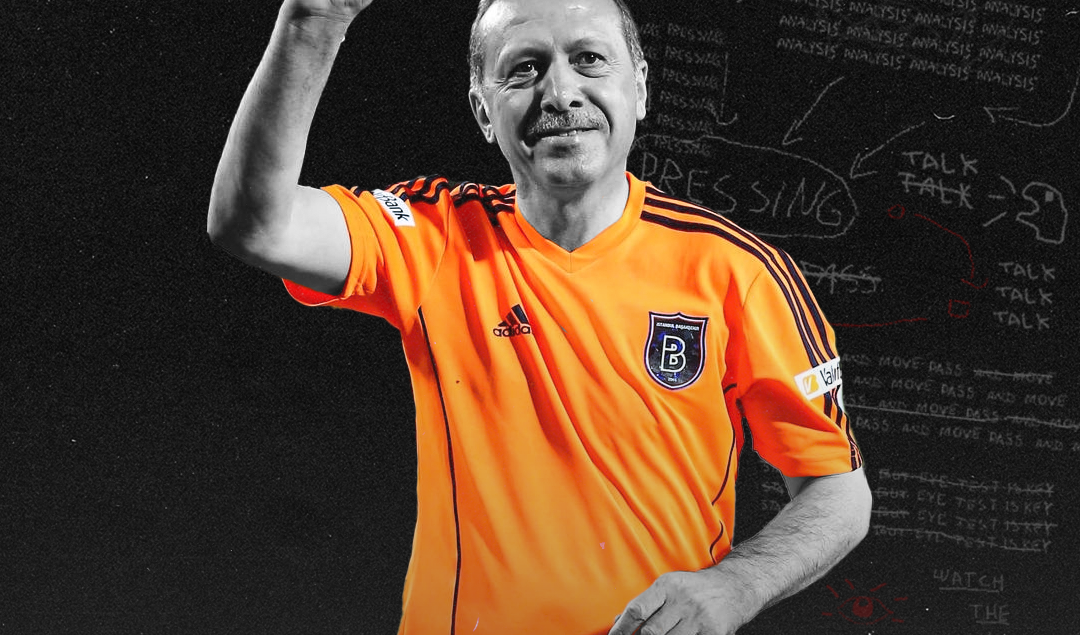Why Was There a Riot in the Turkish Third Division This Month?
A goal scored in the 27th minute of a league match is seldom celebrated by the incursion of substitutes, maniacally spilling onto the pitch. Emotions, however, can run very high in football. In particular, in games that reflect the very same divides that envelope the sport.
On March 5, Bursaspor’s league game against Amed SK (Amedspor), a Kurdish club from Diyakabir, descended into vitriol and chaos. Some of the videos that have surfaced since have drawn waves of attention. However, much of the coverage has omitted many of the nuances which complicate the issues within an already accrescent socio-political divide.
Firstly, Amedspor are a minority club in Turkey. Their fans are largely separatist from the country politically. Even representatives of the club have lamented the difficulties that the club has experienced at the hands of the Turkish Football Federation (TFF) and the Turkish Authorities because of their status as a symbol of Kurdish nationalism. To evidence this, Amedspor fans were prohibited from attending any away matches in Turkey from 2016 until 2019.
Why Bursaspsor?
Historically, Bursaspor and Amedspor clashes have often presented as an allegorical clash in the Turkish football world. The football feels secondary. It is a fixture in which the role of the conflict between Kurds and Turks inevitably weaves its way to the front of the stage at all times.
In 2016, for example, Amedspor made a shock run in the Turkish Cup all the way to the quarter-finals. At the time, Bursaspor had won the Süper Lig and competed in the Champions League in recent memory and Amedspor were languishing in the third tier of Turkish football.
To everybody’s surprise though, Amedspor defeated their rivals in the round of 16 in the iconic Bursa Timsah Stadium, 2-1. One of the key players in this run for Amedspor was Deniz Naki. The German-born attacking midfielder scored the winning goal in their win over Bursapsor but before Amedspor could play their quarter-final against Fenerbahçe, Naki was banned for 12 games by the TFF. This ban was explained as Naki was spreading ‘ideological propaganda’ in a post on Twitter calling for peace in the Kurdish – Turkish conflict.
In addition to this, Amedspor were then forced to play their home match against Fenerbahçe behind closed doors due to supporters chanting and displaying banners that were deemed to be pro-PKK (Kurdish Workers’ Party), who are a designated terrorist organisation in Turkey. Crucially, this advanced the siege mentality that Amedspor felt towards Turkish football and its authorities. It furthered the ‘us vs them’ framing of Amedspor’s position in the Turkish football pyramid.
What’s Happened This Season?
Just six months ago, five Kurdish men were detained by Turkish authorities for raising the Kurdistan flag in Diyarkabir during their 2-0 win over Bursapor in the league. Fans also displayed pictures of Mahsa Amini, whose death while in custody of Iranian authorities became centre of international outrage. Amedspor fans rasied her image in solidarity as Amini was, herself, Kurdish and some even referred to her as ‘our girl’.
Over 10,000 fans in the stadium chanted “Her Bijî Kurdistan” (Long Live Kurdistan), asserting their Kurdish identity which angered the TFF and inflamed tensions between themselves and the rest of Turkey’s football fans.
One thing which is crucial to understand in this issue is just how nationalism plays a role in the forefront of Turkish football. It’s not comparable to English or German or French football. The national anthem is sung at most football games in Turkey, a lot of clubs have strong political overtones, some clubs are aggressively in support of Erdogan’s AKP party, many are in the support of the opposition party the CHP and lionize Mustafa Kemal Atatürk – an ideology referred to as Kemalism. The landscape of Turkish football is very nationalistic and refers much to the background and history of the country.
On March 5, the much-anticipated fixture between Amedspor and Bursaspor competed in an intensity akin to a gladiatorial battle. Fans were seemingly baying for blood from the first whistle. During the match, Bursaspor fans raised banners that alluded to the extrajudicial killings and abductions that occurred during the height of the Kurdish-Turkish conflicts in the 90s. In addition to this, banners included imagery of a white toros – a brand of Renault car used by Turkish Anti-Terrorism units to abduct people that they would later kill – and attacked Amedspor’s goalkeeper, thereby injuring him in the process.
Additionally, players faced a barrage of bottles and even a knife was thrown onto the pitch as Amedspor players fled to the changing rooms. “Were our players supposed to die for the match to be halted?” Amedspor’s official Twitter account posted after the game. Consequently, the match resulted in a 2-1 win for Bursaspor. However, the result again feels secondary. The football feels secondary. This fixture is reflective of a divide that is inescapable in Turkish society and politics.
By: Louis Young / @FrontPostPod
Featured Image: @GabFoligno / Anadolu Agency
